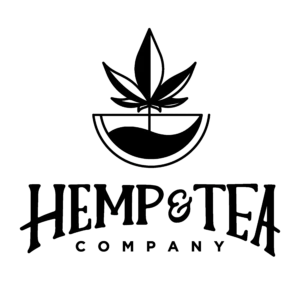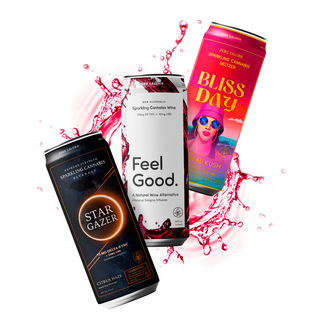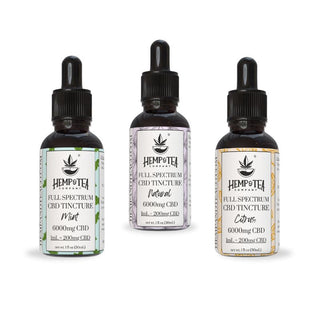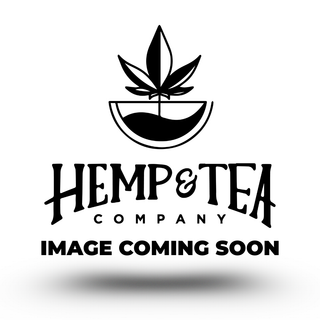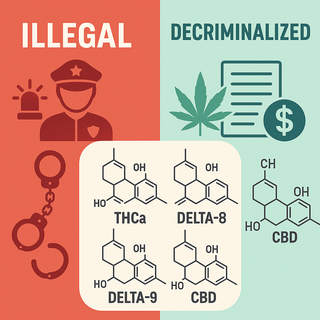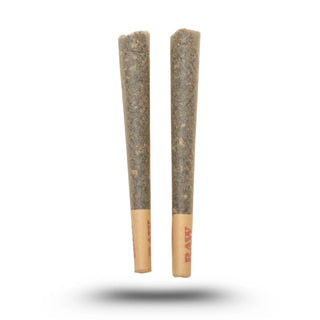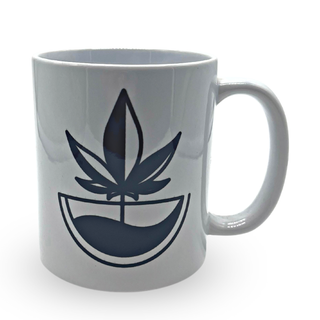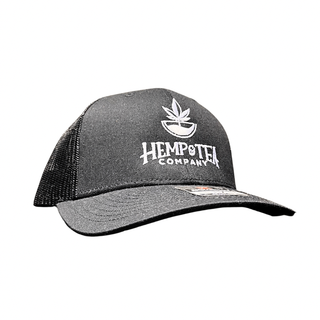🌿 Introduction: Why These Definitions Matter
As cannabis continues to evolve in the United States, legal language can get complicated. Terms like “illegal” and “decriminalized” are often used interchangeably, but in reality, they have very different meanings — especially when it comes to cannabinoids like THCa, Delta-8, Delta-9, Delta-10, HHC, THCP, CBG, and CBN.
If you’re shopping for hemp-derived products from reputable retailers like Hemp & Tea Company, it’s critical to understand the nuances of these terms. This knowledge helps you:
-
Avoid accidental legal risks
-
Understand the limits of possession and use
-
Choose the right cannabinoids for your wellness needs
-
Stay compliant with both state and federal law
⚖️ What Does “Illegal” Mean?
When a substance is illegal, it is completely prohibited by law. This typically means:
-
Possession is a criminal offense → Fines, arrest, or even jail time may apply.
-
Sale and distribution are punishable by law → Trafficking penalties can be severe.
-
No medical or recreational allowances are recognized.
Example:
Traditional Delta-9 THC derived from marijuana (with concentrations above 0.3%) is federally illegal under the Controlled Substances Act in the United States.
👉 For more, see the DEA’s Controlled Substances List.
⚖️ What Does “Decriminalized” Mean?
When a substance is decriminalized, it means:
-
Possession for personal use is no longer treated as a criminal offense
-
Instead, violations are handled as civil infractions, similar to a traffic ticket
-
Sale, distribution, and trafficking may still be illegal
-
Users may face fines, mandatory education, or confiscation, but not jail
Example:
In many U.S. states, cannabis possession of small amounts has been decriminalized. For instance:
-
North Carolina decriminalized possession of under 0.5 ounces of marijuana (punishable by a small fine, not jail time).
-
Oregon went further by decriminalizing possession of small amounts of multiple substances.
👉 See NORML’s State Decriminalization Guide for updated policies.
🌱 Cannabinoids: Where Do They Fall?
Here’s how some of the most popular cannabinoids fit into the illegal vs. decriminalized framework.
🔬 THCa (Tetrahydrocannabinolic Acid)
-
Legal status: Hemp-derived THCa is federally legal if under 0.3% Delta-9 THC by dry weight.
-
How it works: THCa itself is non-psychoactive, but when heated (decarboxylated), it becomes Delta-9 THC, which is psychoactive.
-
State laws vary: Some states treat THCa flower as marijuana due to its potential conversion to THC.
👉 Explore our THCa Flower Collection.
🔬 Delta-8 THC
-
Legal status: Delta-8 derived from hemp is federally legal under the 2018 Farm Bill.
-
Restrictions: Over 17 states have banned or restricted Delta-8 due to safety and regulatory concerns.
-
Effects: Psychoactive, but typically milder than Delta-9.
🔬 Delta-9 THC
-
Legal status:
-
Hemp-derived Delta-9 (under 0.3% concentration by dry weight) is federally legal.
-
Marijuana-derived Delta-9 (above 0.3%) remains federally illegal.
-
-
State laws: Recreational and/or medical use is legal in many states (e.g., Colorado, California, Michigan).
👉 Try our Delta-9 Beverages.
🔬 Delta-10 THC
-
Legal status: Hemp-derived Delta-10 is federally legal.
-
Grey area: Some states have banned it due to similarities with Delta-8.
-
Effects: More uplifting and stimulating compared to Delta-8 and Delta-9.
🔬 HHC (Hexahydrocannabinol)
-
Legal status: Hemp-derived HHC is federally legal, but several states have introduced bans.
-
Effects: Psychoactive, often described as a balance between Delta-8 and Delta-9.
🔬 THCP (Tetrahydrocannabiphorol)
-
Legal status: Legal if hemp-derived and under the 0.3% Delta-9 threshold.
-
Potency: THCP is believed to be up to 30x stronger than Delta-9 THC, though research is still limited.
-
Caution: Due to its strength, some states may restrict it in the future.
🔬 CBG (Cannabigerol)
-
Legal status: Federally legal (non-psychoactive).
-
Effects: Often called the “mother cannabinoid,” CBG supports focus, relaxation, and gut health.
-
Use: Considered a wellness cannabinoid, not subject to the same bans as THC variants.
👉 Explore CBG Products.
🔬 CBN (Cannabinol)
-
Legal status: Federally legal, non-psychoactive.
-
Effects: Often used for sleep support and relaxation.
-
Grey area: Minimal regulatory issues, but some states watch closely if paired with psychoactive THC.
📊 Comparison Chart
| Cannabinoid | Psychoactive? | Legal Status | Notes |
|---|---|---|---|
| THCa | Non-psychoactive (until heated) | Legal under Farm Bill if <0.3% Delta-9 | Converts to THC when smoked/vaped |
| Delta-8 | Yes, mild | Federally legal, banned in many states | Hemp-derived, popular in edibles/vapes |
| Delta-9 | Yes, strong | Illegal if >0.3% | Legal in select states for rec/med use |
| Delta-10 | Yes, stimulating | Federally legal, restricted in states | Less common, uplifting effects |
| HHC | Yes, moderate | Federally legal | Semi-synthetic, increasing in popularity |
| THCP | Yes, very strong | Federally legal if hemp-derived | Strong potency, limited research |
| CBG | No | Legal | Known for focus, wellness |
| CBN | No | Legal | Popular for sleep and calming effects |
🌍 Why States Differ: Illegal vs. Decriminalized
Federal law provides a baseline, but state-level cannabis laws create complexity.
Reasons States Restrict or Ban Cannabinoids:
-
Concerns over synthetic production methods (Delta-8, HHC, Delta-10)
-
Public safety issues (lack of regulation/testing in some markets)
-
Desire to protect licensed cannabis markets from competition
States That Commonly Restrict Hemp Cannabinoids
-
Idaho – All THC, even hemp-derived, remains illegal
-
New York – Restrictions on Delta-8 and other isomers
-
Colorado – Legal marijuana, but bans Delta-8 sales
👉 Always check local laws before purchasing hemp-derived products.
🔍 How “Decriminalized” Differs in Practice
When it comes to cannabinoids, here’s how decriminalization usually looks:
-
Small possession amounts → Confiscation + fine (no jail)
-
Large possession or trafficking → Still treated as illegal
-
No commercial allowances unless under regulated cannabis programs
This is why in decriminalized states, you might not get arrested for a small amount of marijuana, but you still can’t legally buy THC products outside of a licensed dispensary.
✅ Best Practices for Consumers
If you want to enjoy cannabinoids like THCa, Delta-8, or hemp-derived Delta-9 responsibly:
-
Buy from trusted retailers like Hemp & Tea Company with lab-tested products.
-
Check lab reports (COAs) before buying — ensuring safety and potency.
-
Stay updated on state laws, which change rapidly.
-
Consume responsibly — especially with stronger cannabinoids like THCP or high-dose Delta-9.
-
Avoid interstate transport of THC-rich products, even if both states are legal.
🌟 Final Thoughts
Understanding the difference between illegal and decriminalized is critical in today’s cannabis landscape.
-
Illegal means full prohibition: possession, sale, and use are all punishable.
-
Decriminalized means possession may not land you in jail, but distribution and sale are still restricted.
With cannabinoids like THCa, Delta-8, Delta-9, Delta-10, HHC, THCP, CBG, and CBN entering the mainstream, consumers must stay educated to avoid legal pitfalls while still enjoying the wellness and recreational benefits these compounds can offer.
At Hemp & Tea Company, our mission is to provide safe, lab-tested, and federally legal hemp products — giving you peace of mind in an often-confusing marketplace.
